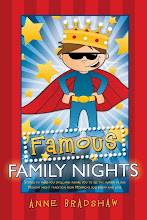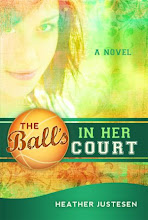By Rachel RagerThe morning dawned bright and cool but promised to warm up toward the afternoon. I unbuckled Layla and Seryn from their car seats and proceeded to herd the children into the house. Having just dropped off Lylli at school, the younger two quickly darted toward her desk to rummage around for treasure.
“Girls, stay out of Lylli’s desk! Why don’t you come in the kitchen and color,” I suggested, hoping that would keep them out of the way while I did last night’s dishes. Crusted food clung to the tower of plates and pans piled precariously in the sink and on the neighboring counter. Before I endeavored to attack that task, I placed coloring books and crayons on the table. The girls raced into the kitchen in a whirl of noise and giggles and climbed up to the table. I prayed they would stay occupied for a good half hour and that I wouldn’t have to clean crayon off the walls later.
To my relief, the girls were engaged in the activity longer than I’d hoped. Not only was I able to get the dishes loaded into the dishwasher and the counter cleared off, I was able to make it into the bathroom unnoticed and start to work on that germ and dirt infested room. However, before I was able to do much, Layla, my three-year-old, hollered from the kitchen.
“Mom! Seryn needs her britches changed! She’s stinky!”
“Ugh,” I groaned. But, rather than see another diaper rash break out on my one-year-old’s bottom, I called, “Come here, Seryn, and Mommy will change your diaper,” in as pleasant of voice as I could muster.
Seryn came running through the house to me, as fast as her little legs would carry her. I changed her diaper and after seeing her back to the kitchen to color, I returned to my chore of cleaning the bathroom. One of the dirtiest rooms of the house, the bathroom seemed to need cleaning at least twice a week. I grumbled as I worked. With five people in the family, the bathroom never stayed clean, and I didn't seem to get to it nearly as often as I wanted.
One reason the bathroom was so dirty was that the girls had learned to scale the drawers in order to reach the counter, thoroughly frightening their mother. From there, they loved to stand on the counter and search for things within the vanity – preferably my make-up or the toothpaste – or play in the water, claiming to wash their hands and leaving puddles of water all over the bathroom.
“Mommy, I want to help. Can I help clean?” Layla asked, with Seryn trailing right behind her.
“Honey, Mommy just wants to get this done. Why don’t you girls go find some books to read?”
“I don’t want to read. Can we play outside?”
“Not right now. I want to be able to watch you. Maybe you could play when I go out to weed later.”
“Can we play with the play dough? We’ll stay in the kitchen.”
“Mommy’s cleaning today. Could you go straighten your room? That would be a big help. Do you want to help Mommy by cleaning your room?”
“Sure!” she squealed and darted off to clean her room.
If they actually managed to get their room clean, that would be a huge help and one less thing for me to worry about. If not, perhaps they would at least stay busy for a while. I would much rather be out enjoying the sun at the park instead of working inside. Cleaning is invigorating, but I wished I could go outside and enjoy the warmth of the day. Oh well, I sighed and quickly set about finishing the bathroom.
When I was done, I trudged down the stairs, already weary from a busy morning. Undoubtedly the sheets would be dry and ready to be put on the beds. I opened the dryer and retrieved the sheets. They were so warm! The smell of fabric softener permeated the air as I buried my face in them. I loved the smell of freshly laundered sheets, so warm and inviting, I wanted nothing more than to wrap them around myself and cuddle up with a good book. But I still had bills to pay and weeds to pull on this fine spring morning. So, ignoring my impulses, I quickly headed up the stairs to make the beds.
The girls had become distracted in their cleaning adventure and now raced little Tonka trucks across the hardwood floors in the living room. I tried to walk around them without stepping on one of the toys as I made my way to their room. All three girls shared a room and I quickly put sheets on the crib first. I then began with the mattress of the bottom bunk bed and finished it off with the quilt.
As I moved to the top bunk, my little sweethearts came barreling into the room. Trying to finish quickly in an effort to get the bills paid before the mailman arrived, I vaguely registered that Layla and Seryn had climbed onto the freshly made bed and were playing around – undoubtedly rumpling the neatly tucked-in sheets.
After a brief moment, Layla said, “Mom, can you please leave so we can jump on the bed?”
What a day it had been. I’d been so busy doing my chores I don’t think I’d smiled all day long. Now, of course, I wanted to laugh! Why on earth would a child ask her mother to leave the room and then admit the crime she was about to commit? Knowing if I laughed, the teaching moment would be for naught, I swallowed my amusement. Sitting down on the bed of the bottom bunk by my daughter’s side, there was enough room for me to sit up straight. There would probably be ample room for her little body to jump, if she hunched over. Still, I could not allow it.
“Honey, you can’t be jumping on the bed. You might fall and get hurt and that would make Mommy very sad.”
“Could I break my leg?”
“Yes.”
“I’ll be careful,” she said with a confident look in her eye.
“Layla, we don’t jump on the bed.”
“But it's just pretend. See? Watch!” She bent her little legs for maximum power and leaped across the bed as Seryn giggled and started to bounce with her. “That's not a real jump, Mom.”
A giggle burst from deep within me as I began to laugh. Of course it was a jump! But in her mind, since it wasn’t high, the jump hardly constituted breaking the rules. Rather than scold further, I gathered my giggling girls in my arms with a big hug and laughed, enjoying the togetherness of mother and daughters. For a brief moment, my heart swelled and I remembered – amidst the demands of my day – the reason I am so grateful to be a mother. Nothing matches the tender, precious moments of enjoying my children.










































